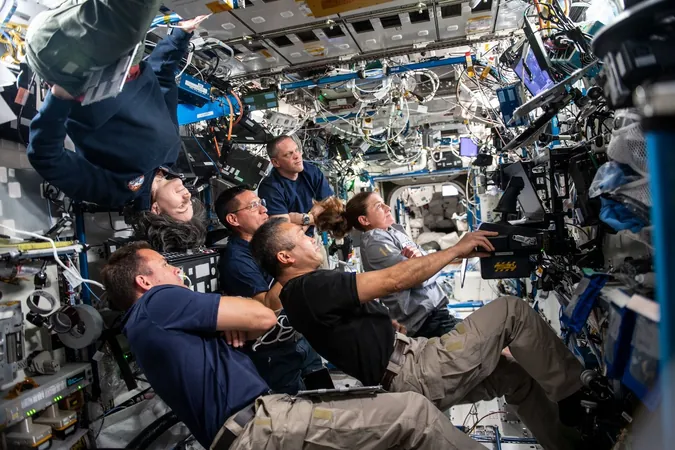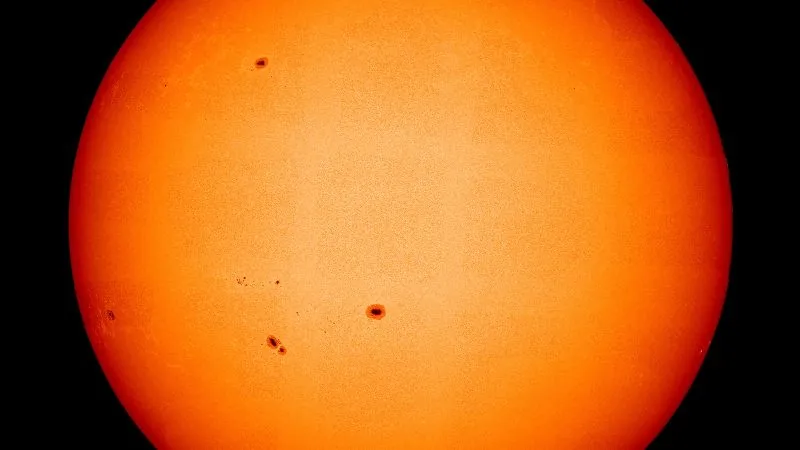
Houston, We Might Have a Brain Problem in Space!
2024-11-20
Author: Jia
Groundbreaking Study Reveals Cognitive Challenges in Space
A groundbreaking new study has unveiled some startling insights into how space travel can affect astronauts' cognitive abilities, raising serious questions about our readiness for long-duration missions beyond Earth.
Research Findings
Researchers from NASA's Behavioral Health and Performance Laboratory closely monitored 25 astronauts aboard the International Space Station (ISS). Their findings, published in the journal Frontiers in Physiology, suggest that astronauts experience slower processing speeds and decreased working memory while living in microgravity. This could significantly impact missions to the Moon and Mars, where quick decision-making is crucial for survival.
Study Design and Results
During the study, the astronauts took a series of 10 cognitive tests on Earth before heading into space and again upon returning, both shortly after and 30 days post-mission. To assess the cognitive effects of space, the astronauts also completed these tests during their time in orbit—early in their missions and again toward the end. The results were intriguing: while astronauts were able to maintain accuracy in their responses, they took longer to complete tasks related to processing speed, working memory, and attention when compared to their performances on Earth.
Temporary Impairments
The silver lining? These cognitive impairments appeared to be temporary; astronauts showed no significant long-term damage upon returning home. “Living and working in space was not linked to widespread cognitive impairment, nor did it indicate brain damage,” said Sheena Dev, the study's lead author. This is encouraging news for the health and safety of astronauts after their missions.
Broader Implications
However, the implications of the study are substantial. Space is rife with challenges—radiation exposure, microgravity effects, and the intense pressures of mission-specific tasks all exert formidable demands on the human brain. These factors can compromise cognitive functioning, similar to how stress affects our brain in everyday scenarios, such as when you're juggling work deadlines after a sleepless night.
Physical Challenges in Space
But the brain isn't the only part of the body suffering during long-term spaceflight. Past research indicates that astronauts face severe physical challenges too, including loss of bone density and muscle atrophy, not to mention potential heart and vision problems. Considering the cumulative effects on both physical and mental health, it's imperative that space agencies like NASA address these risks as they prepare astronauts for future lunar and Martian excursions.
Previous Research on Brain Changes
Interestingly, while cognitive impacts may have been little-explored, some previous studies hint at changes in cerebrospinal fluid volume and gray matter structure due to extended time in space. For instance, a 2020 study suggested that the volume of cerebrospinal fluid increased significantly and did not normalize for up to a year after returning to Earth. Similarly, a 2017 study found inconsistencies in gray matter levels across different brain regions following long space missions.
Looking Ahead
The urgency to explore these issues heightens as NASA gears up for its Artemis program, which aims to establish a long-term human presence on the Moon and pave the way toward Mars exploration. While significant strides have been made, there's still much to uncover about how space affects the human body and brain. Developing effective countermeasures to combat the adverse effects of space travel is crucial if we're to conquer the cosmos safely.
Conclusion
Are we truly ready for interplanetary travel? Only time—and more research—will tell!






 Brasil (PT)
Brasil (PT)
 Canada (EN)
Canada (EN)
 Chile (ES)
Chile (ES)
 España (ES)
España (ES)
 France (FR)
France (FR)
 Hong Kong (EN)
Hong Kong (EN)
 Italia (IT)
Italia (IT)
 日本 (JA)
日本 (JA)
 Magyarország (HU)
Magyarország (HU)
 Norge (NO)
Norge (NO)
 Polska (PL)
Polska (PL)
 Schweiz (DE)
Schweiz (DE)
 Singapore (EN)
Singapore (EN)
 Sverige (SV)
Sverige (SV)
 Suomi (FI)
Suomi (FI)
 Türkiye (TR)
Türkiye (TR)